
I have recently returned from an Erasmus Training visit, at the Universidade Beira Interior, Portugal. Although most of the visit was in Covilhã, I had the opportunity to shadow my Portuguese colleague, in both Porto and Lisbon.
Collaboration with academics at the receiving university has focused on issues related to: sustainable development; the factors that contribute to green behaviour and; ways to build capacity for sustainable development. This year we were considering environmental management initiatives and green behaviour but also, how the past may be preserved for the future and at the same time, contribute to economic development.
It was particularly interesting to visit the Urban Art project and meet the young couple whose enthusiasm is contributing to change. We visited their ‘cowork’ shop before being taken on a tour of the old town. They have preserved the original shop fittings, developed a co-operative working space and display artefacts from the past and new craft products. Covilhã was once described as ‘the Manchester of Portugal’; their project is based on eliciting the past, for the present and the future. It is generating tourism and contributing to renewal in the old town community, where many buildings have fallen into disrepair. The ‘Urban Art tour’ has developed from the ‘Wool Festival’, which each year, has brought a famous artist to the town to develop an image related to the wool and textiles traditions, on one of the old buildings. The tour was fascinating and informative. I particularly liked ‘Owl Eyes’ – constructed from recycled material, largely car-parts. Their Facebook page shows more https://www.facebook.com/woolfest

Cooperative space with original display cupboards

Owl Eyes – made from recycled material

During my week, I met with colleagues, explored the area and took a number of trips, noting environmental management practices. I visited the former Tuberculosis Sanatorium, which has been regenerated into a luxury hotel – an interesting project but despite the luxury, it still seemed too much like a building to be locked away in! I also went for the first time, to Serra da Estrela Natural Park, which is situated in the largest mountain range in Portugal (the Serra da Estrela), and the source of the rivers Mondego, Zêzere (tributary of the Tagus), and Alva. The park is the largest natural conservation area in Portugal; more than half of its area is located above an altitude of 700 m. We went up to Torre, the highest peak and a ski resort; having climbed from 25 degrees and sunshine, the temperature drop at the top was noticeable, so we did not stay long. On the way back we stopped to view Cântaros and the location of the glacial valley of the Zêzere. It’s a landscape befitting a ‘Game of Thrones’.

Still some snow at the top

Visits to Beira Interior are always rewarding. I am astounded by the beauty of the region and the quality of life. I continue to be amazed that so few British people explore the area, yet some Canadians go there regularly. They also attract a lot of Erasmus students. The hotel, at 34 Euros a night was four star quality; a beer, a coffee and a bottle of water, totalled 1.60 Euros – I am left thinking that something is very wrong with our prices in the UK. With the exception of ‘ovos molhos’ (eggs in sugar, and not to my taste), the food is excellent and cheap. I tasted my first ‘gooseneck barnacle’ (see picture) – Pollicipes cornucopia – they look awful but are actually delicious!

Gooseneck Barnacle
The Erasmus strand of Fusion provides a great opportunity to experience other cultures and try new things. Collaboration with European colleagues enhances personal competence, particularly language ability, and offers insights that can be applied in personal and professional practice, back in the UK. Although the focus of my visit was ‘training’, collaboration will lead to future research publications and professional practice.
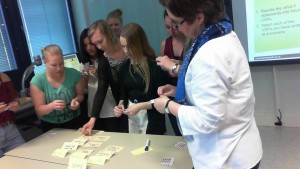
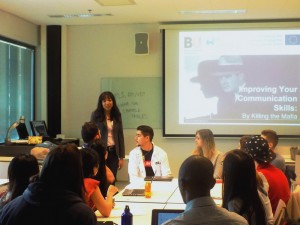



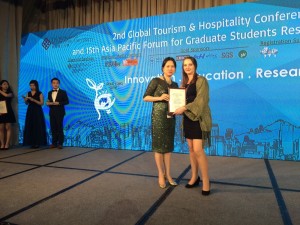




 I have just returned from a 2 week Erasmus professional staff mobility to Bremen University’s “International Staff Week” and special admin training with the local coordinator of the
I have just returned from a 2 week Erasmus professional staff mobility to Bremen University’s “International Staff Week” and special admin training with the local coordinator of the 

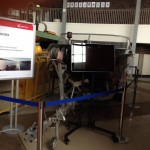


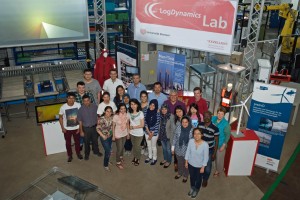
















 Fourth INRC Symposium: From Clinical Applications to Neuro-Inspired Computation
Fourth INRC Symposium: From Clinical Applications to Neuro-Inspired Computation Writing policy briefs
Writing policy briefs Upholding Excellence: The Concordat to Support Research Integrity
Upholding Excellence: The Concordat to Support Research Integrity Today’s Documentation Will Serve Tomorrow’s Justice
Today’s Documentation Will Serve Tomorrow’s Justice ECR Funding Open Call: Research Culture & Community Grant – Application Deadline Friday 12 December
ECR Funding Open Call: Research Culture & Community Grant – Application Deadline Friday 12 December MSCA Postdoctoral Fellowships 2025 Call
MSCA Postdoctoral Fellowships 2025 Call ERC Advanced Grant 2025 Webinar
ERC Advanced Grant 2025 Webinar Horizon Europe Work Programme 2025 Published
Horizon Europe Work Programme 2025 Published Horizon Europe 2025 Work Programme pre-Published
Horizon Europe 2025 Work Programme pre-Published Update on UKRO services
Update on UKRO services European research project exploring use of ‘virtual twins’ to better manage metabolic associated fatty liver disease
European research project exploring use of ‘virtual twins’ to better manage metabolic associated fatty liver disease